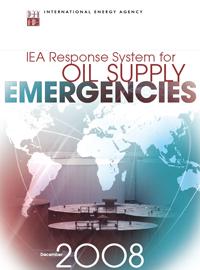Resources
Date
Description
The NOSEC is a committee of the Ministerial Council on Energy (MCE) and provides the main executive channel through which Commonwealth and State Governments formulate their overall management response to a national liquid fuel emergency. The task of the NOSEC is to ensure that the Federal…Date
Description
There is an extensive range of Federal, State/Territory and Local government regulations and legislation applying to refineries and businesses operating in the downstream petroleum industry. Some of the key regulations are outlined below. Formal Price Monitoring On 17 December 2007, under…Date
Description
Australia has robust emergency response plans and arrangements Industry and governments fully recognise the potential impacts of a severe national shortage of fuel supplies to business and consumers. Australia has robust response plans for managing a national liquid fuel emergency, which…
Date
Description
The International Energy Agency (IEA) is the energy forum for 28 industrialised countries, founded in 1974 (see www.aip.com.au/pricing/iea.htm). IEA member country governments are committed to taking joint measures to meet oil supply emergencies. They also have agreed to share energy information,…Date
Description
An AIP publication which provides a factual overview of the liquid fuels market and supply chain in Australia. It also details the key factors influencing the secure and reliable supply of liquid fuels to industry, business and consumers and explains why Australia is in a strong position to…Date
Description
AIP has produced a set of basic facts on biofuels in Australia to inform consumers, commentators and other interested parties. AIP has consistently stated that there is a sustainable role for biofuels in the Australian fuels market provided biofuels are competitively priced, have a reliable supply…Date
Description
AIP member companies provide very reliable supplies of fuel to the Australian market and: represent around 90% of primary fuel supply to the Australian market, have decades of operational experience in Australia and Asia delivering high quality fuel to customers, have major…Date
Description
Self-sufficiency in transport fuels is not necessary for supply security Security of supply is the result of resilient and efficient supply chains and robust risk management – it is not about self-sufficiency or independence from markets. There are 3 critical elements of any strategy to…Date
Description
All fuel users need to analyse and understand their own fuel use and to consider how best to manage the potential impacts of reduced fuel supply Many larger fuel users only hold limited stocks on the expectation that stocks will be held by fuel suppliers, or indeed governments will intervene…Date
Description
Relying on shipping (for imports) does not increase security risks, and shipping lanes are not easily disrupted. Most countries are reliant on movements of petroleum (crude and product) within and between countries, and particularly so for Australia (in both an export and import sense).…